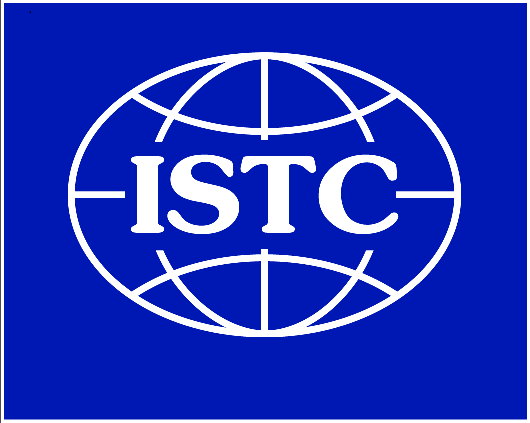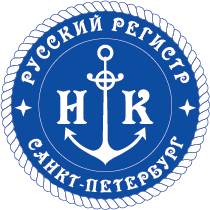NEWS AND COMMENTS
Declaring the transport of dangerous goods - an additional security guarantee...
Pre-shipment inspection of tank containers intended for the carriage of dangerous goods...
ISTC started training experts...
Preparation for the XIV International Conference "Multimodal Transport of Dangerous Goods"...
Training of specialists in a new quality...
"Sea Trade Port "Ust-Luga" JSC has successfully passed the certification audit...
IDGCA presents Russian version of the IMDG Code latest edition on disks...
An IMO circular does not define competency of national authorities...
XIII International Conference «Multi-modal transportation of dangerous goods»...
An IMO circular does not define responsibilities and authority of national organizations...
| Merry Christmas and a Happy New Year! | |
|---|---|
 | |
Another academic year completed | 28.12.2022 |
|
On December 23, at the International Staff Training Center (ISTC), classes on a 40-hour training program for dangerous goods safety advisers were completed. These were the last classes of the year 2022. The course participants were representatives of organizations whose activities are related to the transportation and handling of dangerous goods by sea and river transport, as well as employees of sea and shore terminals. We would like to note that the above mentioned program is usually adjusted before the start of classes, taking into account the interests of all students working in different sectors of the economy. Sometimes special attention is focused on the transportation of specific types of goods and requirements for transport equipment. At these courses, the trainees received comprehensive information for work with ammonia and ammonium nitrate. The trainees were also informed about the results of such international organizations as the UN Subcommittee of Experts on the Transportation of Dangerous Goods and the International Maritime Organization (IMO) during 2022. According to the results of the training and certification, all students received certificates of advanced training and certificates of the International Dangerous Goods and Containers Association. The training program and the dates of the next courses for January-February can be found on the website of the International Staff Training Center. | |
Baltic Customs increases its competence | 15.12.2022 |
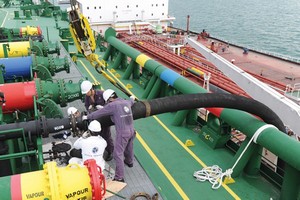
On December 13, Baltic Customs officers were trained at the International Staff Training Center (ISTC) of the International Dangerous Goods and Containers Association. The purpose of the training was to gain additional knowledge and skills to control the turnover of ship fuel and oil reserves. Sampling of fuels and lubricants, determination of the quantity and quality of petroleum products, special safety measures when performing work on ships of sea and river transport, and much more were the subject of lectures and consultations during the training seminar. Lecturers and speakers were representatives of Rostransnadzor, experts from the International Dangerous Goods and Containers Association, and surveyors from "Russian Register" JSC. "Russian Register" JSC has been acting as an independent survey organization (inspection body) for more than 20 years and has extensive experience in carrying out any type of survey work, including bunker survey. The International Staff Training Center (ISTC) conducts training and training seminars in various areas. The next training for specialists whose activities are related to the transportation of dangerous goods and bunkering will be held from December 19 to 23, 2022 remotely. | |
Final certification of dangerous goods safety advisors | 08.12.2022 |
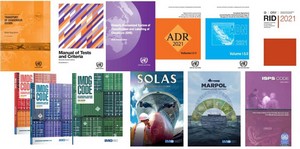
The last training of Dangerous Goods Safety Advisors in 2022 with a further certification at the International Dangerous Goods and Containers Association took place from December 19 to December 23, 2022. The training program has been corrected in accordance with the decisions verified on the latest results of the ECOSOC Subcommittee of Expertise on the Transport of Dangerous Goods (61st session), held from November 28 to December 6, 2022, and the reports of the International Maritime Organizations (IMO) regarding the transport of dangerous goods. The program also covers international requirements for specialists involved in handling activities in sea and river ports. The course of lectures is based on the latest editions of the UN Model Regulations (edition 2021), IMDG Code with amendments 40-20 (2021), ADR (2021), ADN (2021), RID (2021), ICAO Technical Instructions (2021-2022), GHS (2021). Despite rather small number of hours (40 academic hours for management and engineers), students acquire the necessary knowledge to work with dangerous goods in all modes of transport, terminals and warehouses and increase their erudition in terms of risk management when working with dangerous goods, including at the facilities where they are located, handled and transported. The program for rank employees is 24 academic hours. Students who demonstrate the results of the state exam receive certificate from the training center, the result of the international classification society DNV. The Dangerous Goods Safety Advisor (DGSA) certificate is issued in two languages - Russian and English. In November 2022, IDGCA NP developed and implemented a new form of certificate that ensures compliance with international rules and standards. Students who completed training earlier, but no more than two years ago, can exchange their certificate for a new format analog certificate at the IDGCA. Those wishing to undergo training can send a formal application to the ISTC. | |
Transportation of oversize cargo | 10.11.2022 |
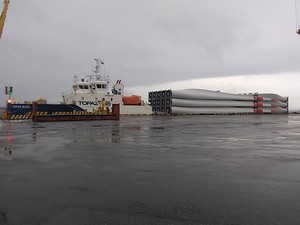 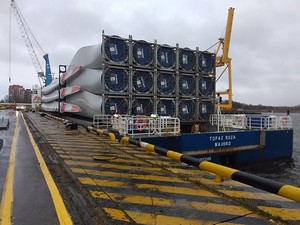
Organization of transportation of a batch of oversize and heavy cargo is unique each time and requires from participants of cargo delivery careful preparation of vehicles (vessels, trains, cars and others), proper cargo packing, reliable and tested means of fastening, approval of schemes of fastening and cargo placement, readiness of handling terminals and, of course, training of specialists. Unique practical experience in organization of transportation of oversize and heavy cargoes belongs to German company Kuehne+Nagel, which at present, due to certain circumstances, transferred its competences to Russian company NOYTECH together with its experienced staff. The chain of safe delivery of cargo necessarily involves independent surveyors involved in the work by various parties: sometimes by cargo owners, sometimes by insurance companies, sometimes by consignees. Inspections are often carried out by several surveyors representing the interests of different organizations. It all depends on the value of the cargo, its destination and the complexity of cargo operations, as well as the shipper’s desire to reduce the risk of possible incidents. For many years, Kuehne + Nagel (NOYTECH) Company has been cooperating with the independent survey company Russian Register JSC. NOYTECH applied to the surveyors of Russian Register to help in sending wind power plants. The surveyor’s main task is to check that the cargo is not damaged, that it is properly placed and secured in accordance with the approved securing scheme and to carry out a strength calculation. The surveyors of Russian Register JSC, as well as other participants in the process, successfully completed the task. | |
Agriculture can be dangerous goods | 10.11.2022 |
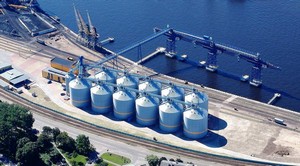
The UN Model Regulations for the Transport of Dangerous Goods and industry regulations based on them (IMDG Code, ADR, ADN, Annex 2 to SMGS, RID Regulation) do not state that grain is dangerous goods. However, enterprises engaged in the transportation and processing of grain may in some cases be involved in the transportation and processing of seed cake, an agricultural crop related to grain. In accordance with the provisions of the above documents, dangerous goods include:
| |
Sustainable development of new areas of personnel training | 07.11.2022 |
|
Since 2003, the International Staff Training Center (ISTC) has developed and implemented more than 20 training programs for personnel in various areas of activity, primarily in the field of transport of dangerous goods, where the ISTC holds leading positions among other training centers. This is facilitated by close interaction with the International Dangerous Goods and Containers Association, which has a consultative status in the UN Subcommittee of Experts. Areas not related to the transport of dangerous goods, such as "Risk Management", "Radiation Safety", "Power Management", "Internal auditor of quality management systems in accordance with the requirements of GOST R ISO 9001-2015 and GOST RV 0015–002–2020”, “Internal auditor ISM & IPS” and others are also in demand. Despite the difficult geopolitical situation, the International Staff Training Center not only continues to train employees of Russian and foreign companies, for which the courses it provides remain relevant and necessary, but also develops new training programs in accordance with the requirements of clients. These include the new direction “Hazard and Operability (HAZOP) Auditor”, recommended for specialists responsible for safe work at industrial and transport enterprises, primarily at oil and gas facilities, where there is a risk of dangerous incidents and accidents, as well as for specialists of independent audit companies. The next HAZOP Auditor training courses are scheduled to be held from 15 to 18 November 2022. At the same time, online from November 14 to 18, 2022, the next training of Dangerous Goods Safety Advisors and their certification at the International Dangerous Goods and Containers Association will take place. | |
Autumn-winter session of the UN ECOSOC Subcommittee of Experts | 18.10.2022 |
|
From November 28 to December 6, Geneva, Switzerland will host the 61st session of the UN ECOSOC Subcommittee of Experts on the Transport of Dangerous Goods. The provisional agenda for the session is available at www.unece.org. This session, among others, will consider the document in the development of which the experts of the International Dangerous Goods and Containers Association took an active part in the informal working group on FRP receptacles (composite receptacles). The document involves making a number of changes and additions to Chapter 6.9 of the UN Model Regulations, namely, to the new Chapter 6.9.3. It is noted that along with the new requirements for the manufacture, testing and certification of FRP, the informal working group put forward a proposal to add a requirement for a documented quality assurance system that complies with the basic principles of generally recognized quality standards and ensures that serial products comply with the prototype FRP service equipment approved by the competent authority. The proposal is based on a pilot study presented in informal document INF.3 (58th session). Also, the International Dangerous Goods and Containers Association, in accordance with the decision of the UN ECOSOC Subcommittee of Experts, will prepare and submit to the Subcommittee a new informal document on pre-testing samples of packaging for resistance to chemicals prior to testing in accordance with the UN Model Regulations. | |
Industry conference on ensuring transport safety | 13.10.2022 |
|
In the period from November 14 to 19, 2022, as part of the annual Transport Week in Moscow, the events of the XVI International Forum and Exhibition "Transport of Russia" will take place on the territory of the Gostiny Dvor complex, which are timed to coincide with the professional holiday – Transport Worker's Day. At the invitation of the Deputy Minister of the Ministry of Transport of the Russian Federation (MINTRANS RUSSIA), Alexander V. Sukhanov, President of the International Dangerous Goods and Containers Association, Gennady Yu. Moshkov, will personally participate in the industry conference on ensuring transport safety on the topic: “Transport safety: from concept to practical implementation and long-term development strategy” and will speak to the participants and guests of the conference as a person involved in the creation of transport safety system. | |
"Regulatory guillotine" hit safety | 10.10.2022 |
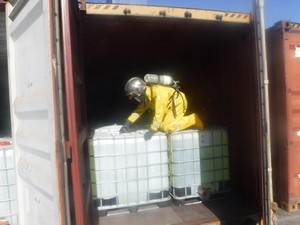
The "regulatory guillotine" is a tool for a large-scale revision and cancellation of regulatory legal acts that negatively affect the overall business climate and the regulatory environment in Russia. This state initiative began with the abolition of 30,002 regulations on January 1, 2021. Unfortunately, this "guillotine" hit indiscriminately on many aspects, including those that directly affect safety, but in no way have a negative impact on business. In this case, we are talking about training of personnel in the framework of the implementation of mandatory licensing requirements for maritime and inland water transport.Decrees of the Government of the Russian Federation ¹ 1243 dated July 21, 2021 "On licensing of activities for transportation of dangerous goods by inland water transport, sea transport and maritime towage activities” and ¹ 2111 dated November 30, 2021 "On licensing of handling activities in relation to dangerous goods in inland water transport and in seaports" have eliminated the need for specialized training of personnel in the field of dangerous goods for license applicants and provide for just rank-and-file employees for handling dangerous goods in their staff. Meanwhile, all international conventions and agreements, most of which have been ratified by the Russian Federation, require the mandatory training of such specialists, and not just one or two persons, but all those who directly work with dangerous goods. And there is a reason for that, because most of the tragedies and accidents with dangerous goods occur due to the fault of personnel who work with dangerous goods, but do not have enough knowledge and have not undergone enough training. The most tragic and illustrative example of this was the events in the port of Beirut on August 4, 2020. According to experts, due to the negligent attitude of the port staff to the performance of their duties and their ignorance of the dangerous properties of ammonium nitrate, 210 people died and about 6 thousand people were injured, buildings in the city were seriously damaged, about 300 thousand residents were left homeless. It is unlikely that this would have happened if the person responsible for storing this high-risk cargo in the warehouse had received appropriate training and was properly responsible for the storage of dangerous goods. Millions of people are involved in the transport, handling and storage of dangerous goods, including shippers, carriers and consignees. At each stage of transportation and for each mode of transport, the transport, handling and storage of dangerous goods is regulated by international and national legal documents. Having a license to carry out certain types of activities, including handling activities, by no means guarantees safe work with dangerous goods, since licensing is, in fact, an act of registration of a legal entity engaged in such activities, which in no way relieves officials of responsibility for possible consequences. The majority of sane experts and specialists in the field of transportation of dangerous goods, as well as the administrative bodies that control transportation of dangerous goods, were sure that the new Government Decree would strengthen the requirements for training of personnel not only in relation to management, but also to all personnel, however, for some unknown reason, the mandatory requirement for staff training was eliminated. At the same time, the Decree introduced such a concept as risk management, and this is correct, since risks need to be managed and the possibility of consequences of certain events should be assessed. But is it possible to reduce the risk without the mandatory training of specialists and workers whose activities are related to dangerous goods? The attention should also be drawn to the fact that certain regulatory legal acts on transport contain requirements that are either almost impossible to fulfill or do not affect safety in any way, and the "guillotine" was not applied to these requirements. Moreover, certain legal acts of the Ministry of Transport of the Russian Federation, regulating the activities of maritime and inland water transport, oblige enterprises and organizations to certify the quality management system in their subordinate bodies, although the quality management system has nothing to do with safety issues, and sometimes such certification is just obtaining a useless "piece of paper with a golden border", stamped with a seal with monograms, which is just a sham, but even small organizations pay a lot of money for such shams and thus simply do not have enough funds for professional training of personnel. Indeed, the "guillotine" applied to some legal acts brought benefits in some cases, but its idea serves no purpose when business is obliged to implement a system that is far from safety issues and creates additional costs. One of the main activities of the International Dangerous Goods and Containers Association, which has a consultative status in the Subcommittee of Experts on the Transport of Dangerous Goods of the UN ECOSOC, is the harmonization of international rules with national ones, as well as the training and certification of personnel in the field of safety. At the same time, training carried out is never of pro-forma nature, and only those who have passed the exam and passed the certification can receive the Association's certificate. For more than twenty years, the International Dangerous Goods and Containers Association has been certifying dangerous goods transport safety advisers and maintaining their registry. Training of specialists is carried out on the basis of a licensed International Staff Training Center. Having a competent adviser on safe transportation of dangerous goods in the company allows the manager to make the right decisions, and this practice exists all over the world. | |
Training of Specialists in various areas | 29.09.2022 |
|
From September 26 to September 30, the International Staff Training Center (ISTC) is training specialists whose activities are related to the transportation of dangerous goods. The program includes issues of transportation of dangerous goods by tankers, safety management and ship security. The Training Center is constantly improving training programs and introducing new tools recommended by international organizations in order to reduce the risk of accidents. Almost every training program in various areas includes a special topic of risk management and risk-assessment. Currently, the groups are being formed for training on a special training course prepared with the methodological assistance of the International Dangerous Goods and Containers Association, for specialists of enterprises and organizations engaged in the manufacture of packaging. It includes topics such as classification and labeling of dangerous goods; requirements for the design, manufacture and testing of packagings; requirements for certification of production and production of serial products, and others. | |
Training of specialists | 26.08.2022 |
|
For 2 weeks, from August 15 to 26, 24 employees of enterprises engaged in handling of dangerous goods were trained at the ISTC. The training combined classroom studies and classes using telecommunication technologies. Course graduates who have successfully passed the exams and meet the requirements for advisers in the transport of dangerous goods in terms of work experience are presented for certification in the International Dangerous Goods and Containers Association. The next Dangerous Goods Handling Training Course will take place from 5 to 9 September. In addition, at the end of September, specialists will be trained in a comprehensive program that includes blocks related to the protection of ships and port facilities, security management, as well as health and environmental protection. The International Dangerous Goods and Containers Association is currently the only organization in Russia that certifies advisers. | |
IDGCA Experts prepared their proposals on FRP service equipment for transportation dangerous goods | 08.08.2022 |
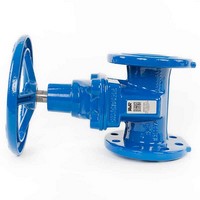 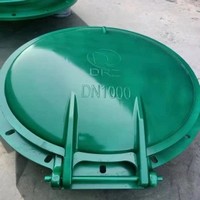
The latest edition of the UN Model Regulations (UN Model Regulations) issued in 2021 introduced a new Chapter 6.9 concerning portable composite tanks. This was preceded by extensive work in the United Nations Sub-Committee of Experts, in which representatives of the International Dangerous Goods and Containers Association participated actively. The initiator of the new chapter 6.9 was the Russian Federation represented by the innovation center «Skolkovo». In addition to Chapter 6.9 of the Model Regulations, a new section was proposed for service equipment for composite or metal shell portable tanks. The head of the informal working group is Assistant Professor Ivan Sergeichev. This work is now almost complete and the final version of the provision 6.9.3 Requirements for the design, construction, inspection and testing of fibre-reinforced plastic(FRP) service equipment for portable tanks will be considered at the next meeting of the United Nations Sub-Committee of Experts from 28 November to 6 December this year. IDGCA experts also took an active part in the development of this topic and made practical contributions to the work, in particular, proposed compromise options for the introduction of requirements to the UN Model Regulations for the quality system of manufacturers who produce equipment for the transport of dangerous goods and inspection requirements. | |
Sustainable development of ISTC after the pandemic | 05.08.2022 |

More than 3,500 managers and specialists of large companies and enterprises who have been trained at the International Staff Training Center (ISTC) and subsequently certified by the International Dangerous Goods and Containers Association (IDGCA) work in the Russian Federation and abroad. Since 2003, ISTC had been located in Strelna on the St. Petersburg Highway, 47. In 2020 the institution changed its address, and now its actual address coincides with the legal: St. Petersburg, 35, Marshal Govorov Str., of. 436 and 440. In 2020 due to the pandemic ISTC switched to a new technology of teaching. At present, the training process is carried out in a combined format, including both webinars and offline training. The modern equipment provided by ISTC enables trainees to participate in the training process either online or directly in the classroom. The same format is used for IDGCA final examinations and certification of graduates. Each workplace of the trainee in the training class is equipped with a personal laptop, connected to the Internet and a database of international and national regulatory documents in their latest editions. If necessary, individual students from other cities are provided with laptops to connect to the webinar remotely, for example, in a hotel. All this allows the trainees to gain knowledge in the most convenient form without reducing the level of training. ISTC provides a recreation area to for comfortable coffee breaks for course participants. The training is conducted in English for foreign trainees. The training is carried out both with simultaneous interpretation and directly in English as well. Training programs are designed for the various areas of industry and transport managers and staff, some of the training programs are based on the model courses of such international organizations as UN, IMO, UNCTAD and other recognized international institutions. Only updated international and national documents are used in the curricula. The high level of teacher training and teaching methods allow the students to master the necessary material in a short time, to pass the exams successfully, to receive certificates of advanced training and international certificates recognized in Russia and abroad. Having specialists trained at the ISTC will help companies achieve global goals in sustainable business development. ISTC invites specialists to training! | |
Expert opinion | 04.08.2022 |
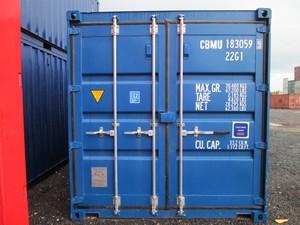
Mikhail Ognev, Director General of NP «IDGCA» gave an interview to «Moskovskaya Gazeta» on August 1, which we publish on our website. We will be glad if visitors of our site express their opinion and agree or disagree with the opinion of the author. Russia may face a shortage of containers, the publications «Infotrans», «Vgudok» and «RBC» write. Foreign operators leave the Russian market, Russian-leased containers leave with export abroad and do not return because of reduced imports to Russia. The magazine «RZD-partner» reported in May that there are not enough containers in the Russian transport market. «Moskovskaya Gazeta» discussed the situation with representatives of the industry In light of the departure of international lines, the Russian market faced the withdrawal from the container fleet, which accounted for about 40% of all equipment used for transportation in/out of and through Russia, told «Moskovskaya Gazeta» in PJSC «Transcontainer». «The shortage of containers remains one of the key risks for the industry, - noted the management «Transcontainer». - But today the situation has stabilized: the volumes of carriers who have suspended their work are replaced by containers of Chinese and Russian owners who actively buy containers or rent them. The situation is also positively influenced by the measures of the Government of the Russian Federation to stabilize the market, including the elimination of import duty on containers and subsidizing the interest rate on the purchase of containers abroad. These measures encourage Russian residents to replenish their container fleet». What are the main types of containers used by RZD?/p> Today, China accounts for about 97% of the world container production, with the cost of this type of packaging in China is twice lower than in Russia, according to the interlocutors of the publication. «This is due to economies of scale and subsidizing the cost of metal for the production of containers in China», - explained the management of PJSC. Why in the market of Russian CF transport domestic containers are not in demand? The capacity of Russian manufacturers is not enough today to meet the existing demand, - said at the enterprise. - In Russia, about 6 thousand containers are produced, while only in the spring «Transcontainer» has replenished its fleet of more than 8.5 thousand. containers. In order to ensure the competitiveness of Russian containers, economies of scale are needed - large production at minimal costs. It is also important to subsidize the cost of metal for container manufacturers, as is done in China». Today, the largest manufacturers and suppliers of heavy cargo containers, both conventional and specialized, are Chinese enterprises, confirmed «Moskovskaya Gazeta» Director General of the International Dangerous Goods and Containers Association (IDGCA) Michael Ognev. According to him, there are no problems with the purchase of Chinese containers, but there are other difficulties. Any Russian or foreign company can place an order in China for the manufacture of containers. Another thing is that there may be delays in the execution of the order, the reasons for which may be several. First of all, manufacturing plants in some parts of China were shut down during the pandemic and were unable to meet the orders received before it began. As for the delays of containers in connection with sanctions, it is worth noting that it is unlikely that the containers were delayed - the goods loaded into the containers were delayed, included in the sanctions lists», - the expert explained. Containers are expensive type of packaging, the expediency of their purchase is largely determined by the presence of a cargo base for containers and the scale of trade, Mikhail Ognev said. «If the cargo is transported from China, then the container is profitable to buy in China, after which it will be delivered to the Russian consumer, - says the interlocutor «Moskovskaya». - If there is no cargo, there is no need for a container. In contrast to railway wagons, heavy cargo containers are designed for international transport of goods by sea, inland waterways, rail and road; In doing so, containers should comply with the requirements of the International Convention on Safe Containers (CSC), the Customs Convention on Containers (CTC) and applicable standards. Meeting these requirements significantly increases the cost of the container. Furthermore, the head samples (prototypes) of the containers must be tested and each structure manufactured must be inspected before it is put into service. Containers are seldom ordered as their cost is high, making it advisable to order them under specific loads. If the volume of world trade falls, the number of required containers also decreases». Today, the world fleet of heavy cargo containers totals about 16 million TEU (twenty-foot equivalent, from Eng. twenty-foot equivalent unit - approx. Mikhail Ognev; according to BIC – 26 mln), said the specialist. Mainly IDGCA director added, this park is owned by leasing companies that deliver containers to shippers, carriers or forwarders. At the same time, often large leasing companies are also operators, - says Mikhail Ognev. - Such large companies (for example, Maersk) have not only their huge container fleet, but also their own ships, vehicles, i.e. they are able to fully provide cargo transportation. There are no such large leasing container companies in Russia. Moreover, foreign large leasing organizations came to Russia in the 90s and practically «subdued» all shipping container lines, leaving to Russian companies only port and warehouse services, as well as transportation in Russia». JSC «RZD», according to IDGCA, is not a container owner, the expert noted. «These are PJSC «Transcontainer», JSC «RZD Business Asset», as well as several small companies. Of course, in the world market, Russian companies cannot compete little with Western and Chinese companies. This is explained very simply: cargo in containers in Russia is imported mainly from Europe and China, while Russia, as a supplier of raw materials, sends it in bulk on ships or in wagons and does not use containers. Russian companies do not participate in the global circulation of containers. It is understandable that containers are tied to the cargo, and therefore they should be manufactured in regions where the cargo base is formed. For Russian consumers such a base is formed in Europe and China», - said the IDGCA Director General. Russian container manufacturers are few, prospects of local production, in tough competition with world manufacturers, not too big, added the collocutor. In the 90s there were three manufacturers: Ilyichevsk, Abakan plants and the enterprise Baltkonteiner (Saint Petersburg). The Ilyichevsk plant ceased to exist and Baltkonteiner disappeared along with the Baltic shipping company, which was one of its shareholders. This factory was built by the German side, had lines with modern equipment, but all this was not used, as it turned out to be unnecessary and the Baltic shipping company. This may be due to the fact that at that time the container lines were occupied by foreign companies and Baltkontiner’s products were not purchased. The company was established on the basis of the prospective prospects of the Baltic Sea Shipping Company, which owned 60,000 containers and leased about the same amount. And all this, as you know, collapsed», - said Mikhail Ognev. In his opinion, it makes no sense to restore the production of heavy cargo containers in Russia before forming a cargo base for them. The only way to develop container transport and revive the construction of new Russian containers is, in our opinion, the creation in Russia of an institute of leasing in the interests of companies that will buy containers for the transportation of goods. There are no companies in Russia that can compete with the West and China. In addressing this issue, it should be remembered that not only containers but also ships need to be built. Competition in the container transport market is very tough», - concluded the expert. | |
Certification of dangerous goods safety advisers | 28.07.2022 |
|
Certification of advisers (consultants) on the safety of transport of dangerous goods was introduced into world practice in 1996. The requirements for organizations of certifying advisers are laid down in the regulations of ADR, ADN, RID, Annex 2 of SMGS. According to these requirements, the certification organization should not be training. It must also be competent and independent of any individuals or legal entities who hires advisers. The International Dangerous Goods and Containers Association («IDGCA») fully complies with these requirements, the competence of Association was confirmed by the granting of consultative status in 2004 by the UN ECOSOC Committee of Experts on the Transport of Dangerous Goods and the Globally Harmonized System of Hazard Classification and Labelling of Chemical Products. The Association has currently certified about 1000 advisers, the data about which are presented on the official website of «IDGCA». The certificate of adviser is valid for 5 years. If after the expiry of this term the adviser has not passed the next certification in the «IDGCA», he is deprived of this title, and the certificate loses its force. The practice of the Association in the field of certification of dangerous goods safety advise is positively assessed by the Russian inspection bodies, and has also found support from foreign colleagues. | |
UN experts on the transport of dangerous goods and the classification of hazardous substances will meet for a regular session | 24.06.2022 |

From June 27 to July 6 in Geneva, at the Palais des Nations, a regular meeting of experts on the transport of dangerous goods and the classification of hazardous substances will be held in accordance with the approved program. During the meeting of the Subcommittee, meetings of formal and informal working groups will be held online and offline. As always, representatives of states and non-governmental organizations will take part in the session. According to the results of the session, decisions will be made as part of the further development of the UN Model Regulations and the Globally Harmonized System of Hazard Classification and Labeling of Chemical Products. The Secretariat of the UN Sub-Committee of Experts sent the UN Model Regulations and GHS to "IDGCA" in Russian and English. These documents are the basis for the training of safety advisers for the transport of dangerous goods, who are trained by the ISTC and certified by the International Dangerous Goods and Containers Association. | |
Transport equipment safety | 22.06.2022 |
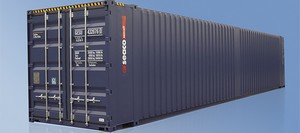
The lack of high-capacity containers, disruption of logistics chains have led to the fact that carriers are trying to use containers for transportation, which for a long time were not used as transport equipment, but were used as a warehouse. Inspection organizations with sufficient experience and training in this area can determine the technical condition of the container and its suitability for further operation. At the same time, the owner, buyer, seller, etc. can make a preliminary assessment of the container, but for these purposes they must be trained and educated accordingly. From July 4 to July 6, ISTC will conduct special courses on containers under the program, which includes the study of the CSC and CCC-72 conventions, applicable ISO standards, as well as repair methods and conditions for the safe operation of containers, including containers intended for the transport of dangerous goods. | |
Training of Specialists in Working with Dangerous Goods in Multimodal Transportation | 16.06.2022 |
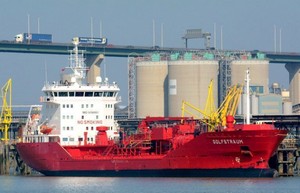
Any transport of dangerous goods, which includes two or more modes of transport, one of which is sea, refers to multimodal transport. Most international transport is multimodal. For persons who, to one degree or another, are involved in such transportation, the ISTC has prepared a special training program, the learning of which allows you to ensure the safe transportation and handling of dangerous goods by various modes of transport. In the period from 20 to 24 June, the ISTCwill train specialists under this program. Persons who successfully mastered the program and meet the requirements of "IDGCA" NP will be awarded certificates of advanced training, as well as internationally recognized certificates of advisors for the safe transport of dangerous goods. | |
Another tragedy with dangerous goods | 10.06.2022 |
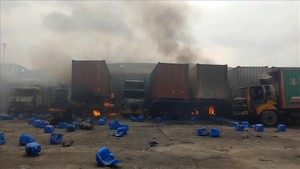
A container terminal in Bangladesh suffered an explosion and a massive fire. This tragedy claimed more than 50 human lives. About 300 people were wounded. This is practically the second largest tragedy after the explosion of ammonium nitrate in Beirut, where the tragedy claimed the lives of more than 200 people and led to huge destruction. The suspected cause of the severe spread of the fire is the improper storage and handling of hydrogen peroxide (? 2014 and ? 2015 according to the classification of the UN Model Regulations). As the temperature rises, hydrogen peroxide can release copious amounts of oxygen, which contributes to the spread of the fire. Various flammable and other types of dangerous substances were stored in containers at the terminal. It can also be assumed that those responsible for the safe handling of dangerous goods in both Beirut and Bangladesh were not properly trained and were unable to assess the risk of possible explosions and fires in certain situations. There can be many reasons for the fire and explosion; this will be determined by the investigation. But we can safely say that when handling dangerous goods, attention should be paid to many aspects, such as the correct stowage of cargo in a container, cargo compatibility, choosing the right packaging, temperature conditions, the distance between containers when they are placed at the terminal and following the recommendations prescribed by international organizations and, first of all, the International Maritime Organization. The International Dangerous Goods and Containers Association expresses its condolences to the families of the dead and injured. It can be assumed that the world community will again take additional security measures when working with dangerous goods and develop additional tools. | |
International rules and standards are a national treasure | 08.06.2022 |
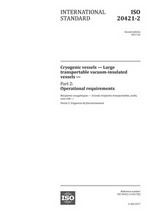 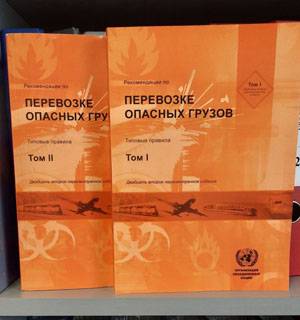
International rules and standards are the national treasure of countries that participate in their development, study and implement them in national requirements and in the industry. An important role in the development of international rules and standards is played by non-governmental organizations that have a consultative status in international organizations. The transport of dangerous goods by various modes of transport is regulated by dozens of international regulations and many standards. The leading international institutions in this area are the UN Sub-Committee of Experts on the Transport of Dangerous Goods and the international organization for standardization ISO. A set of rules and standards helps to organize the safe and cost-effective transportation of dangerous goods. "IDGCA" NP has a consultative status in the Subcommittee of UN Experts, and is also actively working in the international organization for standardization ISO in terms of improving standards. On June 7, experts of "IDGCA" NP participated in the informal working group of the Subcommittee of UN Experts on the development of new rules regarding the manufacture of fittings and valves for portable tanks made of composite and metal-composite materials. The new section of the Rules will be presented for discussion by the UN Experts at the upcoming 60th session in Geneva, which will be held from June 27 to July 6. Today, June 8, the discussion of new requirements for cryogenic technology in terms of portable tanks for the transport of cryogenic liquids, within the framework of the ISO/TC 220 committee, ended. | |
DANGEROUS GOODS SAFETY ADVISER | 27.05.2022 |
|
One of the requirements of international regulations regarding the transport of dangerous goods is the training of personnel whose activities are related to dangerous goods. These rules also determine the categories of people who must be trained. For example, ADR requires every company engaged in the transport of dangerous goods by road to have a specially trained person - an adviser in safe transport of dangerous goods. The International Dangerous Goods and Containers Association, almost since its foundation in 2001, has certified more than 3,000 advisers in the transport of dangerous goods for various companies and organizations in Russia and abroad. One of the important aspects of confirming the qualifications of an Adviser and his ability to ensure safety when working with dangerous goods is his certification. "IDGCA" NP conducts such certification within the framework of a specially developed procedure, regardless of the examinations conducted by training centers. Certification procedure includes not only a test of knowledge of the Rules, but also the ability to apply them in practice. In this regard, the certification commission of the Association considers the job descriptions of an applicant for the title of adviser and his practical experience in working with dangerous goods. The international practice of certification of experts, advisers and other responsible persons provides for the separation of training specialists and their certification. The International Association follows this practice. "IDGCA" NP has a consultative status in the UN Subcommittee of Experts and today is the only independent international organization that carries out such certification in Russia. The results of the certification of the next group will be published on Tuesday, May 31. | |
European seafarers were trained at the ISTC | 20.05.2022 |
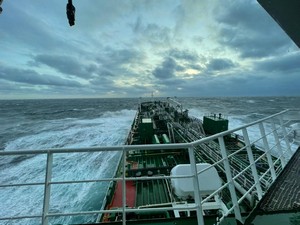
Another group of European seafarers was trained at the International Staff Training Center on the course "Transportation of Dangerous Goods by Tankers on Inland Waterways (ADN)". The training was held in English, which required serious preparations from the ISTC teaching staff. Examinations and certification of ADN experts were also held in English at the International Dangerous Goods and Containers Association. The ISTC was highly appreciated by European seafarers. Approval documents issued by the International Dangerous Goods and Containers Association are recognized by many European shipping companies. In June, the next group on ADN for Russian and foreign seafarers is planned. Certified specialists receive an internationally recognized document and are entered in the register of experts on the website of "IDGCA" NP. | |
Standardization News | 13.05.2022 |
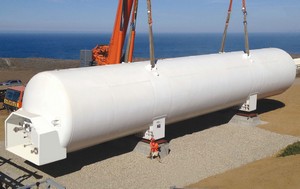
Experts of NP «IDGCA» considered the amendment to the standard ISO 21014:2019/Cryogenic vessels - Cryogenic insulation performance (ISO/TC 220 ISO 21014:2019/DAmd 1). This document defines practical methods for determining the thermal insulation characteristics of cryogenic receptacles. These methods include measurements of thermal insulation technical parameters in both open and closed cryogenic systems. Based on the results of the analysis of the amendment, the experts recommended the secretariat of ROS ISO to vote for it positively. The International Dangerous Goods and Containers Association is a member of the Technical Committee on Standardization «Oxygen and cryogenic equipment» (TC 114). | |
Training of specialists for enterprises engaged in the production of containers and packaging intended for the transport of dangerous goods by various modes of transport | 04.05.2022 |
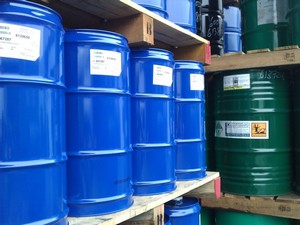
On May 23-24 and May 30-31, online training will be held for specialists responsible for the quality and safety of products at enterprises manufacturing containers and packaging for the transport of dangerous goods by all modes of transport. The training is based on the UN Model Regulations on Dangerous Goods, edition 22, which entered into force in 2021, as well as on the International Maritime Dangerous Goods Code, Amendment 40-20, and ISO 16106:2020. The training program includes all aspects related to production, testing, certification of containers and packaging, and the development of a quality program. At the end of the course, students will receive a state-recognized certificate of additional education and a certificate of the International Dangerous Goods and Containers Association | |
Preparations for the 60th session of the UN Sub-Committee of Experts on the Transport of Dangerous Goods | 01.04.2022 |

The 60th session of the UN Sub-Committee of Experts on Dangerous Goods will be held in Geneva from June 27 to July 6, 2022 in accordance with the program. Experts of "IDGCA" NP will take part in the session; they prepared an official document concerning the testing of samples of plastic packaging intended for the transport of dangerous goods. It is noteworthy that certain laboratories and recognized organizations interpret the procedure recommended by the UN Model Regulations for testing samples of plastic containers for their resistance to chemical products, set out in paragraph 6.1.5.2.4, as mandatory. These organizations require enterprises that manufacture various types of plastic containers to expose its samples to a chemical product intended for transportation for at least 6 months before strength tests are carried out. The IDGCA experts believe that this procedure is not only expensive, but also dangerous for personnel and the environment and is difficult to perform in real conditions. In this regard, other methods have been proposed to determine the chemical resistance of a material, for example, by laboratory testing of samples of the material in accordance with the procedure prescribed by ISO 175:2010. | |
Application of the ADN rules to inland water transport vessels | 28.03.2022 |
|
We hereby inform you that a seminar on the application of the ADN rules to inland water transport vessels will be held from 10.00 to 13.00 on 5 April 2022. The seminar is held with the support of the North-West Office of Rostransnadzor, online. Participation is free. If you are interested, you can send two representatives of your organization to the seminar. Confirmation of your participation in the seminar should be sent to NP «IDGCA» (info@idgca.org) not later than April 1, 2022. | |
The inspector must be competent and fair | 23.03.2022 |
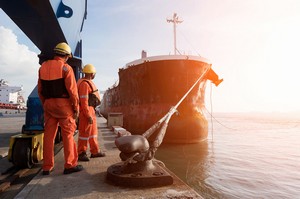
The concept of an inspector is used in many areas of human activity. The status of an inspector is determined by his official duties, and his competence is determined by his professional training and experience. Another important factor that distinguishes an inspector from an employee is that an inspector must have a higher level of training than an employee being checked. It is no coincidence that when we are talk about assessing navigation safety, both within state control and independent inspections, inspectors are former chief engineers, chief officers, captains, i.e. those persons who have many years of experience on seagoing vessels. There is an international standard ISO 17020, which defines the requirements for various categories of inspection bodies, and, accordingly, for inspectors who work in these bodies. The standard distinguishes three categories of inspection bodies: A, B, C. Inspectors involved in the control of the transport of dangerous goods in various modes of transport should have special knowledge in addition to their professional experience and receive special training in international and national regulations and standards related to the handling of dangerous goods. The ISTC together with the IDGCA prepared unique training programs for state control inspectors. The peculiarity of the training is that the training is carried out on the basis of the International Staff Training Center, and certification is in the IDGCA. Particular attention in the training of inspectors is paid to issues and methods of risk management. In recent years, more than 200 inspectors of Rostransnadzor, customs authorities and port control have been certified by the International Dangerous Goods and Containers Association. All of them have received unique knowledge and training that allow them to carry out their activities at a high professional level. Last week, representatives of the port control of the Federal State Budgetary Institution "AMP of the Sea of Azov" and "AMP of the Western Arctic" underwent another fresh training. The next training of inspectors is planned for May. Inspectors who have been trained at the ISTC and passed the exam at the Association receive a standard certificate and are entered in the register of "IDGCA" NP. | |
Composite materials for the transport of dangerous goods | 10.03.2022 |
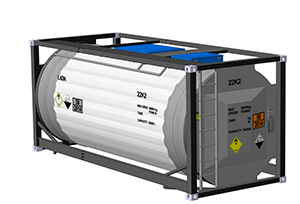
In 2021, the 22nd edition of the Model Regulations on the transport of dangerous goods included a new chapter 6.9 regarding the requirements for tanks made of composite materials (Fibre Reinforced Plastic), initiated by the Russian Federation. Reinforced Plastic), initiated by the Russian Federation. In continuation of this topic, an informal working group was created chaired by Ivan Sergeychev (Center for Materials Technology, Skolkovo). The objective of this informal group is to develop equipment requirements for composite portable tanks. The last meeting of the working group took place on March 9, 2022 remotely. The informal group was attended by experts from Japan, Canada, Russia and IDGCA. At the meeting, the experts of "IDGCA" NP paid special attention to section 6.9.3.2.2.1 (Manufacturing Quality System) of the draft Rules, concerning the quality system of the manufacturer, which, according to the experts of "IDGCA" NP and its members, is overburdened with the requirements for the quality system, and offered their own interpretation of this section. The meeting also discussed the issue of design criteria for service equipment made of composite materials for portable tanks. The next meeting is scheduled for April this year. | |
GLOBAL PORTS is improving its competence in the field of handling dangerous goods | 03.03.2022 |
|
The Global Ports group of companies is one of the leading operators of specialized port terminals in Russia, the leader of the Russian container handling market. The group includes 7 marine multifunctional terminals. The preparation and handling of dangerous goods in seaports requires special attention from all participants of the transport process. The safety of work at the terminal is ensured by many factors and, first of all, by the competence and knowledge of both managers and support staff. Safety requirements are stipulated not only by Government Decrees regarding the licensing of certain types of activities, but also by international documents that regulate the handling and transportation of dangerous goods. Proper placement, marking, transportation, preparation of documents necessary for the transport of dangerous goods is a single set of tasks that must be solved by any enterprise whose activities are related to dangerous goods. The ISTC constantly updates its programs, forms training programs in such a way as to take into account all the latest changes not only in international rules, but also incidents that occur with dangerous goods in Russia and abroad. The training program for "Global Ports" employees is determined by the requirements for a dangerous goods advisor. After the end of the classes, all course participants undergo certification at IDGCA NP. Those who successfully passed the exam receive a certificate of additional education from the ISTC and a certificate of Safety Advisor from the International Dangerous Goods and Containers Association. | |
New edition of the UN Model Regulations | 24.02.2022 |

| |
Certification of ADN experts. | 21.02.2022 |
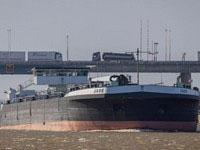
On 25 February the International Dangerous Goods and Containers Association carries out certification of ADN experts for work on inland waterways tank vessels with the issuance of certificates of international standard. Seafarers who have received special training are eligible for certification. The information is recorded in the Common Roster of Experts of the NP "IDGCA". | |
Development of national standardization in the field of oxygen and cryogenic equipment | 04.02.2022 |
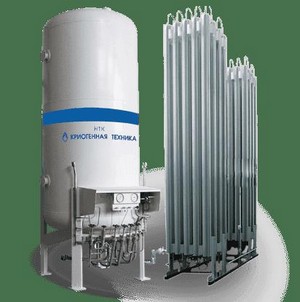
International Dangerous Goods and Containers Association (IDGCA NP) was approved as a member of the Technical Committee on Standardization "Oxygen and Cryogenic Equipment" (TC 114) by order of the Federal Agency for Technical Regulation and Metrology ¹ 219 dated January 28, 2022. IDGCA NP for many years takes part in the work of ISO technical committee TC 220 "Cryogenic vessels" on behalf of the Russian Federation and contributes to the development of international standards. | |
XVI International Conference Dedicated to the 20th Anniversary of the International Dangerous Goods and Containers Association"Multimodal transport of dangerous goods" | 21.01.2022 |
|
On April 5-6, 2022 the XVI International Conference dedicated to the 20th anniversary of the International Dangerous Goods and Containers Association «Multimodal Transport of Dangerous Goods» will take place. The topic of the conference is Risk management in the transport of dangerous goods by different modes of transport. Representatives of State authorities, experts of international organizations, heads of enterprises and organizations whose activities are related to the handling and transportation of dangerous goods are invited to participate. | |



